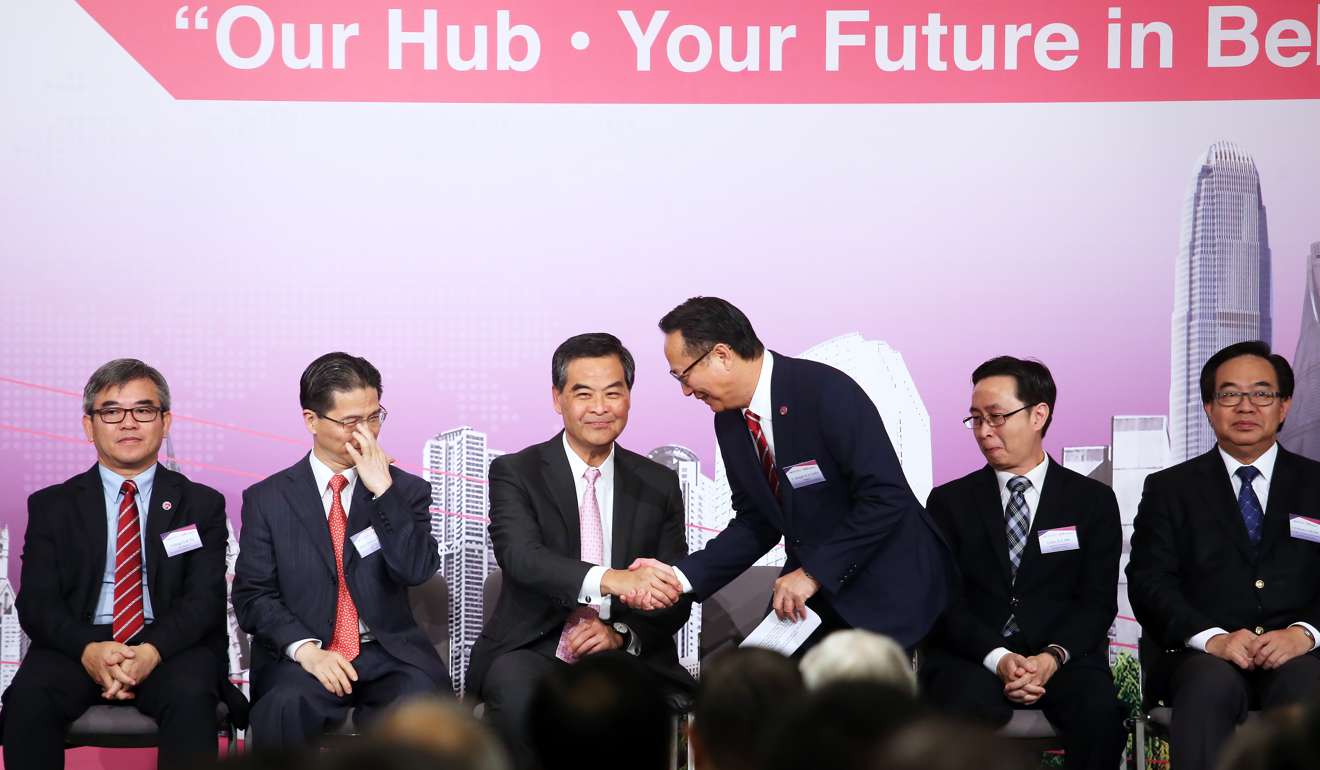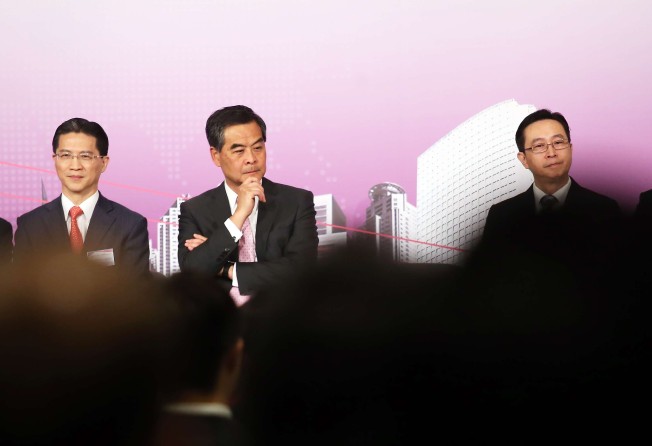
Hong Kong in prime position to become finance hub for Beijing’s belt and road, CY Leung says
Outgoing leader says city’s status as the world’s largest offshore Renminbi business hub was a key advantage

Chief Executive Leung Chung-ying has said Hong Kong’s entry into the Asian Infrastructure Investment Bank (AIIB)will help the city become the main financing centre for the mainland’s global trade initiative.
“As China’s international financial centre and the world’s China financial centre, Hong Kong is well positioned to finance the massive infrastructure projects along the belt and road,” Leung said during a conference organised by the Hong Kong Institution of Engineers on Friday.
“Our aspiration as the belt and road’s financing centre received a major boost just two weeks ago, with the approval of Hong Kong’s membership to the Asian Infrastructure Investment Bank.”
On March 23, the Beijing-based AIIB announced Hong Kong as one of 13 applicants approved for membership.
The investment bank is considered to be part of China’s “go global” strategy.
It aims to support infrastructure development in Asian countries positioned along the “One Belt, One Road” trade network – a central government initiative that includes the Silk Road Economic Belt and the 21st Century Maritime Silk Road, and seeks to link trade between about 65 countries.
Infrastructure projects in those Asian countries are estimated to cost US$40 trillion (HK$310 trillion) from 2015 to 2030.

As well as Hong Kong’s vibrant stock market, Leung said the city’s status as the world’s largest offshore Renminbi business hub was a key advantage because “the Renminbi is likely to emerge as a key currency of exchange among belt and road companies and projects”.
The government is expected to seek Legislative Council approval for HK$1.2 billion over five years to buy shares in the AIIB, a requirement of the membership process.
Leung also said in this year’s central government work report, Premier Li Keqiang had announced the launch of a joint study ahead of a development plan for the Guangdong-Hong Kong-Macao Bay Area.
The region, at the southern tip of China, is a strategic point for the 21st Century Maritime Silk Road.
“It presents ample opportunities for all 11 cities in the region to work together,” Leung said.
“One area of collaboration is clearly the joint exploration of overseas markets between Hong Kong and Guangdong, with Guangdong providing the construction works and Hong Kong the professional services, including contract negotiation, contract management, project management and facilities management.”
Leung said a number of belt and road dedicated infrastructure funds had already been established in Hong Kong, while the Infrastructure Financing Facilitation Office, under the Hong Kong Monetary Authority, had about 60 members keen to “ride the wave” of Beijing’s global trade initiative.